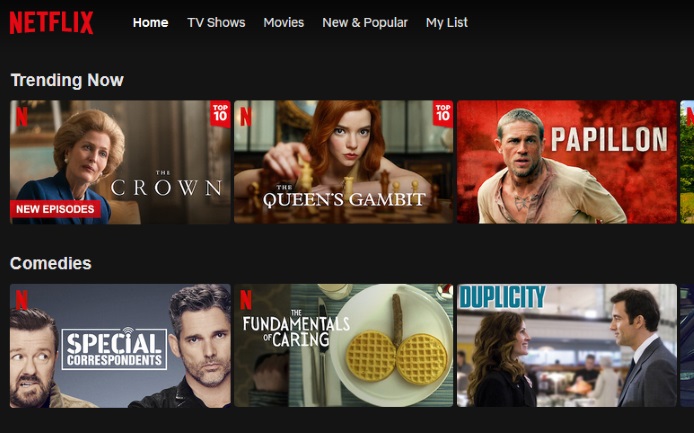Sarbani Sen looks at the mesmerizing influence of Netflix.
The ongoing COVID-19 pandemic has dramatically changed our lives… and our viewing habits. There has been a huge increase in viewing figures for video entertainment worldwide, in territorial, satellite and online services. One such service is Netflix. Almost 16 million new subscribers signed up in the first quarter of 2020 during the first wave of the pandemic, and the figures continue to rise steadily. (ED)
I am actually quite a spiritual person, meditating in the morning, reading a book at night before sleeping, concentrating on my goals in life, praying for my kids to be fine, etc. I used to think of myself an informed person, with a master’s degree, speaking eight languages and now starting to learn Arabic – so, not the average mass-controlled person. Until I met Netflix.
Netflix changed my life
It changed my sense of priorities. Now instead of rejoicing of going to bed with my husband, I’d rather watch the next episode of Suits. I’ve never been a TV person. Always hated cheesy uninteresting series filled with bad acting. But here it’s different, and the more I look around and talk to people, the more I realize they have got us all mesmerized. But what is it that hooks us up? What is the miracle recipe? from The Huffington Post to The Guardian and The Independent, and even very serious medical journals, everybody is worried about this new addiction. Some researchers even came up with some remedies. They say soon it might be on the WHO list (as is compulsive gaming disorder now). Here are the nine steps we follow to dig a trap for ourselves.
-
- Stairway out of (crappy) reality
Escapism is what they call it: stepping out of your daily stress and uninteresting life to join a family of (more) interesting people and issues. When you are in the middle of routine, or some stress related issues, it is sometimes a good thing to go and spend some time watching others go through that stress – instead of you. Sometimes their romances become yours, and their flirts make you feel alive again. - The cliffhanger strategy
When faced with the acute stress of not knowing what is going to happen next, the body produces an excess of CRH, a hormone that mediates the release of other stress hormones in the body. This causes the body to remain alert (our fight or flight response), which can disrupt sleep. So, when you’re faced with that cliffhanger at midnight, you’re suddenly not so tired and you find yourself pushing through the next show. “Our biggest competitor is sleep,” claims the CEO of Netflix. I’m sure you know exactly what I mean.
- Stairway out of (crappy) reality







